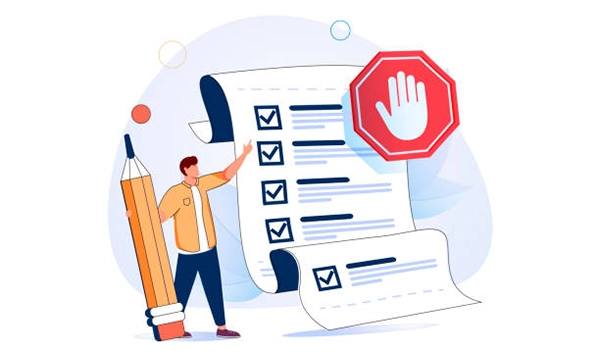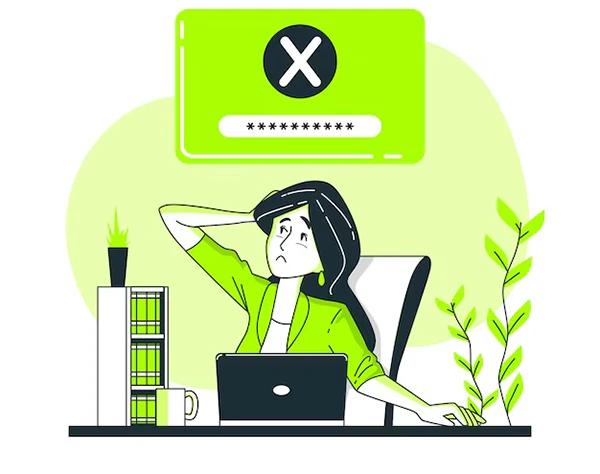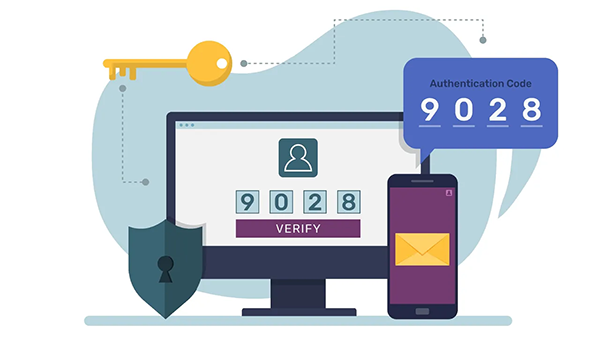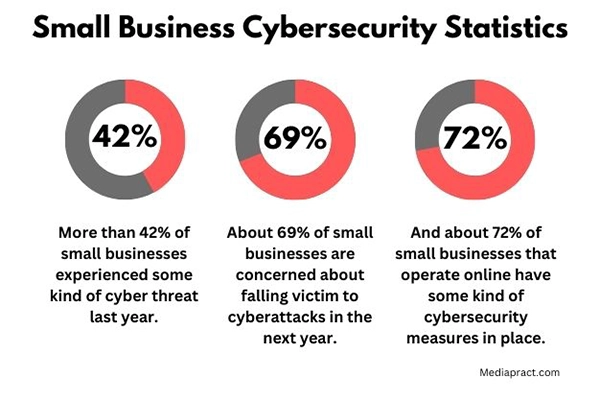It’s basically like the Wild West out there in the online world these days. And no matter who you are, nobody is safe from being hacked.
Yes, even your hole-in-the-wall mom-and-pop shop is not safe from hackers. Also, learn about Future of Cybersecurity by reading this article.
You know, small businesses often hold the same type of sensitive data that large enterprises store. The only difference is that, unlike large companies, small businesses do not have the knowledge or resources to keep this data safe.
This is why more than 80% of small businesses operating online fall victim to some kind of data breach or hacking attempt every year.
So, if you’re a small business owner, how do you even go about protecting your enterprise from cyber threats in the first place?
In this blog post, we will learn more about what cybersecurity means and how you can improve cybersecurity for your small business.
Many small business owners think that just because they’re small, they’ll be safe from hackers, but that is just wishful thinking.
You might just think that only big companies that make headlines can be prone to hacking, but the reality is that no business is totally immune to hacking.
One of the biggest reasons that many small businesses avoid cybersecurity is pretty much ignorance and lack of knowledge.
And if one of these is one of the reasons that you’ve avoided the topic, there are many courses available online. You can even pursue a masters in cybersecurity online these days.
So, what does cybersecurity even mean and why is it so important for small businesses?
Cybersecurity is basically the way to protect your online devices, accounts, services, and presence from online threats that will cause you or your small business harm.
For small businesses, even a small cyberattack will put most of your money, data, and IT at risk. And if a hacker is able to get in, they can cause damage that can be pretty hard to recover from.
DID YOU KNOW?
More than 60% of small businesses that fall victim to an attack shut down within six months after the breach.
So, is there a way to protect your small business from online threats out there?
Well, luckily for you, there actually are a few.
You know, as a small business, it might feel like the end of the world if you fall victim to even a small data breach. But you do not need to worry because there are steps you can take to prevent it from happening.
Here are some of the best strategies in the industry to help you improve cybersecurity for your small business.

Before you even begin protecting your small business from online threats, you first need to implement policies and safe practices in place to protect your business.
Start by assessing where your business might be at risk or what policies you can implement to avoid some risks.
Even using an antivirus to scan through your emails can prevent your accounts from being hacked.
If you’re thinking of using antivirus software to protect your devices from cyber threats, great job. These programs can keep most of your devices safe from viruses, spyware, ransomware, phishing attempts, and much more.
But there is one thing you must keep in mind. As time goes on, cyber threats will continue to adapt and will threaten us in new, never-before-seen ways.
Antiviruses will also get better along with them. Just make sure that you keep your antivirus software updated too.
We all know that the first thing a hacker will do to get access to your system is try to brute-force your passwords.
And if your password is something like “YourName123,” then good luck it’s just a matter of time before you get hacked.

You need to make passwords that are unique for each account and it’s pretty important to make a strong one.
Use a password that is at least 8-15 characters long with a mix of upper- and lower-case characters with numbers and special characters.
Here is an example of a strong password.
“P@sSw0Rd44!2”
Note: This is just an example, please do not use the same string of characters as your password.
And if you’re like me and constantly forget your passwords, you can also use a password manager to remember your passwords for you.
In most small businesses, it falls on the employees to practice safe cybersecurity practices, as there is not much of a policy or enforcement method in place.
For example, recently, the famous YouTube channel Linus Tech Tips became a victim of hacking because an employee mistakenly opened a malicious email, thinking it was from one of the sponsors.
You need to set up mandatory policies and train your employees on how to open mail or handle customer and other sensitive information.

Multi-factor authentication (MFA) is a great way if you want to protect your corporate accounts. These give an extra layer of security to your online accounts.
MFAs make brute forcing somewhat harder for hackers, as they would need another set of decimal or hexadecimal character strings to gain access to your accounts.
Do you have a backup of your data and files, if your answer is no, then you need to start now.
Why, you ask?
If your small business ever experiences a cyberattack the first thing you’ll lose is your digital data.
These attacks can easily compromise or corrupt most of your files, so recovering from the aftermath is pretty much impossible.
You need to make it a habit of running regular backups and train your employees to do the same as well.
How you monitor and respond to cyber threats is just as important as having security measures in place.
Just imagine you’re going about your day at your small café when suddenly all your POS machines are locked, telling you to pay a ransom to unlock access to your systems.
Sounds scary, right?
How you prepare and respond to situations like this is pretty important to enhancing the cybersecurity of your small business.
In these cases, a quick and effective response is important to minimize the damage.
Here are some effective ways to respond to a cyber threat.

More than 42% of small businesses experienced some kind of cyber threat last year. But about 69% of small businesses are concerned about falling victim to cyberattacks in the next year. And nearly 72% of small businesses that operate online have some kind of cybersecurity measure in place.
Small businesses need to focus on a lot of things and there is a ton on their to-do lists. But in present times, cybersecurity is at the top of their lists right now.
They need a way to protect their businesses from constant threats. After all, it’s not just big businesses that make headlines that become victims of hackers these days.
So, if you’re a small business owner, this blog post will teach you some steps you can take to improve the cybersecurity of your business.

Thanks for choosing to leave a comment. Please keep in mind that all comments are moderated according to our comment Policy.